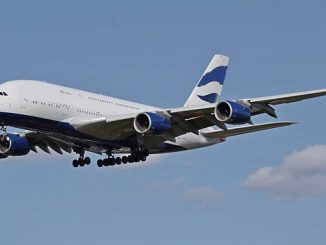
Spirit Airlines (SAVE), long under the shadow of bankruptcy speculation following the blocked acquisition by JetBlue Airways (JBLU) in February, has officially filed for Chapter 11 bankruptcy protection this week in the Southern District of New York. The ultra-low-cost carrier, based in Florida, has been grappling with a debt load exceeding $3.8 billion, exacerbated by the failure of a subsequent acquisition attempt by Frontier Airlines (ULCC).
In a letter addressed to both customers and shareholders, Spirit Airlines outlined the strategy behind this move, “Spirit has entered into an agreement with our bondholders that is expected to reduce our total debt, provide increased financial flexibility, position Spirit for long-term success, and accelerate investments providing Guests with enhanced travel experiences and greater value.” This financial restructuring includes a ‘prearranged’ Chapter 11 filing, aiming to facilitate a smoother reorganization process.
Despite the filing, operations will continue as usual, with CEO Ted Christie stating, “The most important thing to know is that you can continue to book and fly now and in the future.” The airline reassures passengers that all tickets, credits, and loyalty points will remain valid. To bolster its financial position during this restructuring, Spirit has secured an additional $300 million in financing, with plans to emerge from bankruptcy by the first quarter of 2025, an ambitious timeline considering the complexities involved in such proceedings.
The bankruptcy plan has received backing from a majority of Spirit’s bondholders, whom Christie views as providing a “vote of confidence” in the airline’s future. This support suggests a belief in Spirit’s capacity to maintain operations without further reducing its flight schedule beyond the cuts already implemented earlier in the year as part of efforts to stave off bankruptcy.
Market reaction was swift, with Spirit Airlines shares plummeting over 60% on the day the Wall Street Journal initially reported on the impending bankruptcy. In pre-market trading following the official announcement, the stock nosedived more than 18%, opening at $1.08. This represents a drastic decline, with the stock value down 68.2% in the last 5 trading sessions and more than 93% year-to-date.
Christie emphasized the agreement with bondholders as a pivotal move, stating, “I am pleased we have reached an agreement with a supermajority of both our loyalty and convertible bondholders on a comprehensive recapitalization of the Company.” This step is seen as crucial not only for financial restructuring but also for retaining faith among customers and investors in Spirit’s operational continuity and future viability.
The airline industry, known for its high fixed costs and intense competition, has seen numerous carriers struggle in the past. Spirit’s case, however, serves as a notable example of how external factors like regulatory decisions and market dynamics can precipitate financial distress even among established players. While the airline aims to navigate through this challenging period, the outcome will likely influence perceptions of financial stability in the low-cost airline sector.
- Bulenox: Get 45% to 91% OFF ... Use Discount Code: UNO
- Risk Our Money Not Yours | Get 50% to 90% OFF ... Use Discount Code: MMBVBKSM
Disclaimer: This page contains affiliate links. If you choose to make a purchase after clicking a link, we may receive a commission at no additional cost to you. Thank you for your support!





Leave a Reply